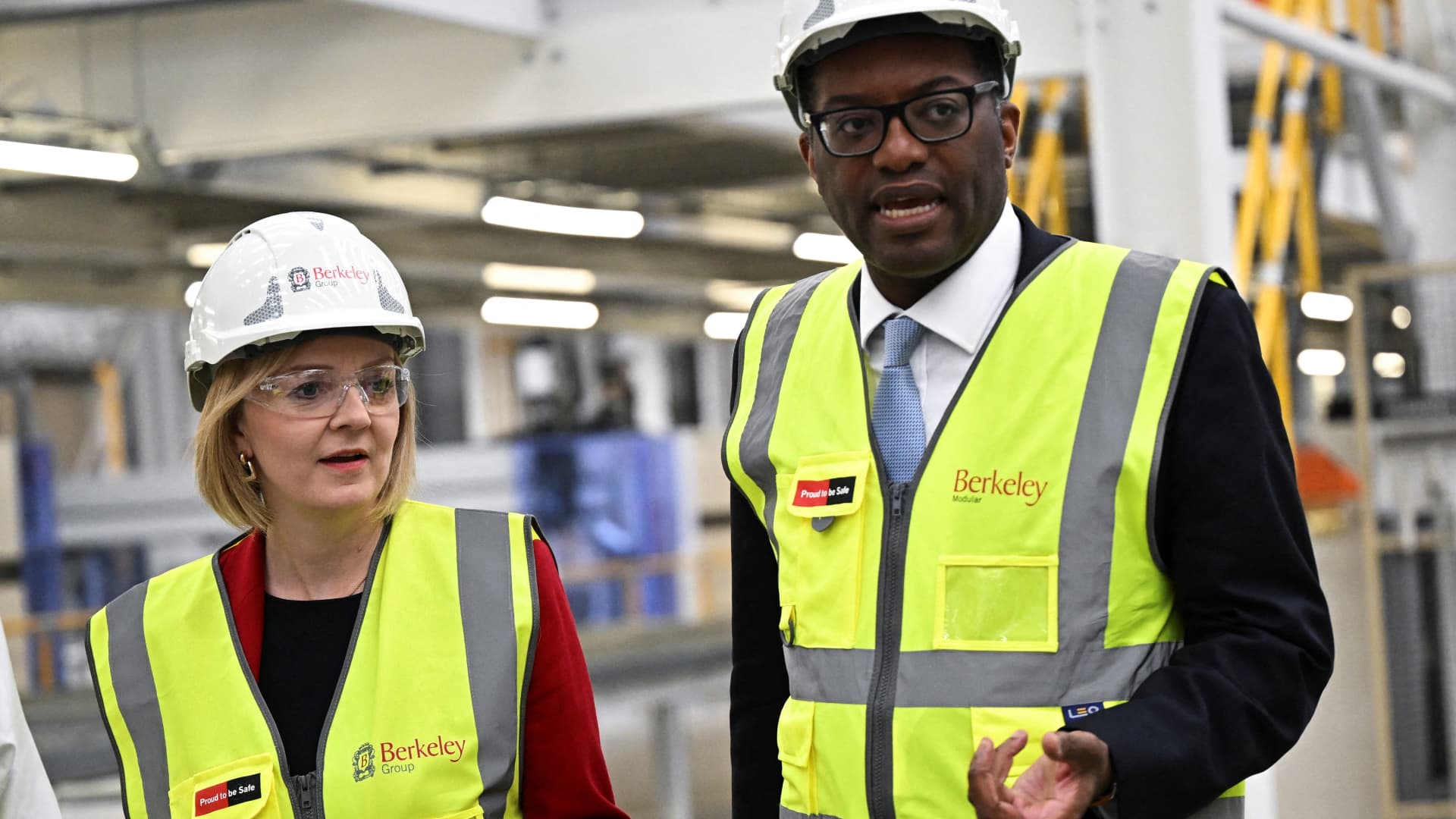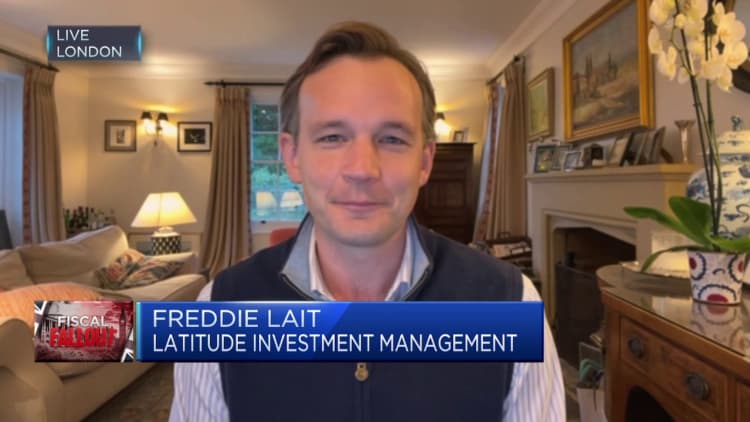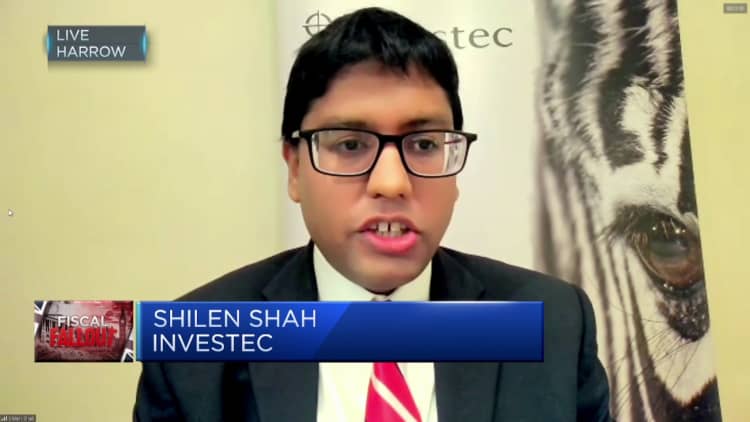
Britain’s Prime Minister Liz Truss and Britain’s Chancellor of the Exchequer Kwasi Kwarteng.
Dylan Martinez | Afp | Getty Images
The OBR had prepared a general economic forecast ahead of the mini-budget on Sept. 23, but the U.K. Treasury opted not to publish it, according to the BBC.
Kwarteng said a full forecast would be published “before the end of the year” in his announcement to fellow lawmakers, and a full budget statement is now expected Nov. 23.

The IMF has since given a damning verdict of the measures laid out in the mini-budget, saying they will “likely increase inequality” and that the U.K. government should “consider ways to provide support that is more targeted and re-evaluate the tax measures, especially those that benefit high income earners.”
A growing number of economists and investors have also slated the plans, including the founder of Bridgewater, one of the world’s largest hedge funds, Ray Dalio, who said the proposed measures suggest government “incompetence.”
Conservative support plunges
The recent government activity has also caused the incumbent Conservative Party to lose favor with the British public. Around 54% of those surveyed would vote for the opposition – the left-leaning Labour Party – if a general election were to happen in the near future, according to the latest research by YouGov.
Labour currently has a 33-point lead over the Conservatives, which is the highest figure the party has received in any published poll since the late 1990s, according to the polling organization. Meanwhile the number of voters intending to vote Conservative has dropped to 21%.

